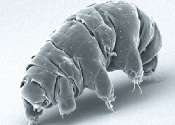Researchers uncover human DNA repair by nuclear metamorphosis
Researchers at the University of Toronto have discovered a DNA repair mechanism that advances understanding of how human cells stay healthy, and which could lead to new treatments for cancer and premature aging.









